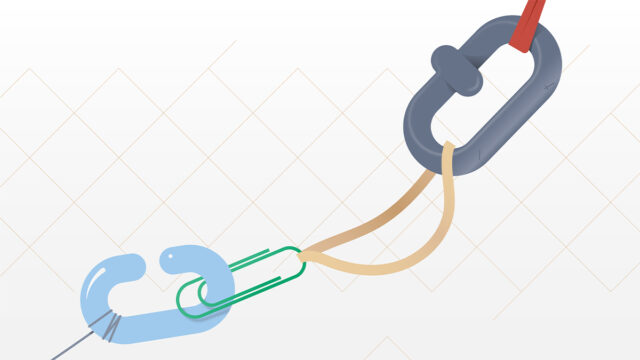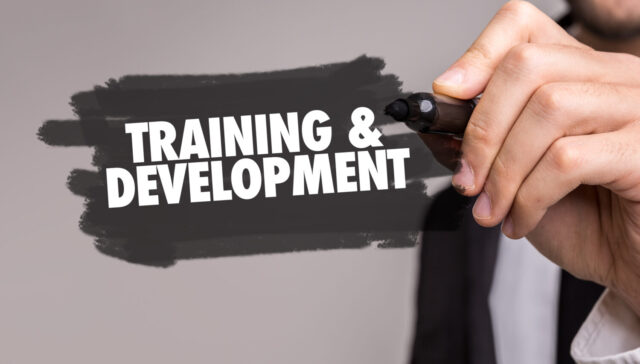
High-performance teams are the lifeblood of successful organizations. They drive innovation, enhance productivity, and propel growth.
However, their creation is not an accident. It requires deliberate and strategic talent development.
High-Performance Teams: More than Just Collaboration
High-performance teams are more than just groups of individuals working together; they’re a dynamic collection of diverse talents and skills, aligned under a shared vision.
Each member of these high-functioning units is not just committed to their individual tasks, but the overarching team goals and the larger objectives of the organization. They embody a spirit of mutual cooperation and responsibility, driving superior results collectively.
These teams possess unique characteristics that set them apart. Among these are:

- High levels of collaboration, enabling them to efficiently pool their resources, knowledge, and expertise.
- A relentless drive for innovation, continually pushing boundaries and redefining what’s possible.
- Consistent high levels of productivity, even in the face of challenges and pressures.
The Art of Cultivating High-Performance Teams
However, cultivating such teams is not a task accomplished overnight. It requires a well thought-out approach to talent development, a deep understanding of team dynamics, and the nurturing of a supportive, enabling work environment.
The creation and sustenance of high-performance teams are intentional, deliberate endeavors, strategic in nature, and executed with precision.
The Multifaceted Benefits of High-Performance Teams: A Competitive Advantage

The benefits of developing high-performance teams extend beyond improved operational efficiency. Their impact is transformative, reshaping organizational landscapes, and creating ripples that touch every facet of the business. These benefits include:
- Improved productivity due to their synergistic approach and optimized use of resources.
- Breeding grounds for innovation, with diverse skill sets generating a rich tapestry of ideas.
- Increased employee satisfaction, when individuals feel their skills are being effectively utilized, their ideas valued, and their growth nurtured.
- Formidable competitive advantage in today’s fast-paced, ever-evolving business world.
In sum, the value high-performance teams bring to an organization is invaluable. Developing and maintaining such teams is not merely an option but a strategic necessity in today’s business environment.
It’s an investment that yields substantial returns – from boosting productivity and spurring innovation to enhance employee satisfaction and gaining a competitive edge. And central to this process is a focused, strategic approach to talent development.
The Role of Coaching in Talent Development

Coaching plays a critical role in talent development, fostering skills that directly contribute to creating high-performance teams. Effective coaching can enhance critical thinking, improve problem-solving skills, and foster a growth mindset, all vital elements of high-performing teams.
Different types of coaching – such as executive coaching, team coaching, and individual coaching – can address unique needs and challenges.
For instance, executive coaching can help leaders improve their strategic thinking and decision-making skills, while team coaching can enhance team dynamics and collaboration.
Individual coaching, on the other hand, can help employees improve specific skills and overcome personal challenges.
In essence, effective coaching is a custom-made solution that takes into account individual or team-specific needs, strengths, and weaknesses.
As facilitators and guides, coaches aid in navigating the developmental journey, leading to meaningful transformations and ongoing success.
When incorporated into talent development strategies, coaching helps organizations uncover latent potential, nurture leadership skills, and foster a culture of continuous growth and high performance.
To learn more about the impact of coaching on talent development, click here.
Strategies for Developing High-Performance Teams
Hiring the Right People: The Foundation of Success

Talent development begins with hiring the right people – individuals who not only possess the necessary skills but also demonstrate the right attitude. While technical expertise is crucial, do not underestimate the importance of cultural fit.
Pay attention to how well potential candidates align with your team’s ethos, values, and organizational culture. Prioritize candidates who showcase adaptability, a team player’s spirit, and an eagerness to learn and grow.
The ‘right’ individuals form the backbone of high-performance teams, and getting this first step right sets the tone for all the talent development initiatives that follow.
Foster a Culture of Open Communication: The Bedrock of High Performance
Open communication is the lifeblood of high-performance teams. It’s crucial to create an environment where team members feel safe to express their ideas, opinions, and concerns without fear of reprisal.
Foster trust and promote transparency, making sure everyone has a voice and that voice is heard. Regular team meetings, one-on-one sessions, and open-door policies can encourage communication.
A culture of open communication can help in nipping issues in the bud, promoting shared understanding, and fostering a sense of shared purpose and camaraderie.
Training and Development: Fuel for Growth

Investing in regular training programs, workshops, and coaching is key to enhancing team members’ skills. Remember, talent development is not a one-time event but a continuous process.
In today’s fast-paced business world, staying up-to-date with the latest industry trends and technology is vital. Continuous learning opportunities empower employees, boost their confidence, and enable them to bring more to the table.
Including personalized coaching in your talent development strategy can help identify and address individual learning needs and career aspirations.
Recognition and Rewards: Catalysts for Motivation and Performance
Recognition and reward systems play a critical role in boosting performance, motivation, and team morale. Recognizing team members for their efforts and contributions can go a long way in enhancing productivity.
It signals to employees that their work is valued, fostering a sense of belonging and loyalty. Reward systems can include anything from public acknowledgments in meetings, award ceremonies, and performance-based bonuses to non-
monetary perks such as flexible work hours, additional vacation days, or professional development opportunities.
Fostering Collaboration and Teamwork: The Engine of High Performance Teams

The spirit of collaboration and teamwork is the heartbeat of high-performance teams. Encouraging team members to exchange ideas, utilize each other’s strengths, and adopt a learning mindset from their peers can significantly enhance team dynamics.
Collaboration instills a shared sense of purpose, encourages learning, and stimulates innovative problem solving.
Employing team-building activities, cross-functional tasks, and digital collaboration tools can further bolster teamwork. Importantly, collaboration goes beyond merely working together; it’s about amplifying each other’s efforts and propelling collective success.
Wrapping Up
The journey to fostering high-performance teams necessitates strategic talent development underscored by thoughtful planning and execution.
It goes beyond just onboarding the right individuals, extending to skill nurturing and creating an environment that promotes outstanding performance.
The strategies delineated above serve as a guide to fostering high-performance teams. However, the unique composition and dynamics of each team might necessitate a tailored approach.
On this transformative journey, coaching emerges as a potent instrument, empowering individuals and teams to tap into their full potential and deliver exceptional outcomes.
You may want to read a related article: Executive Coaching for CEOs and VPs.









